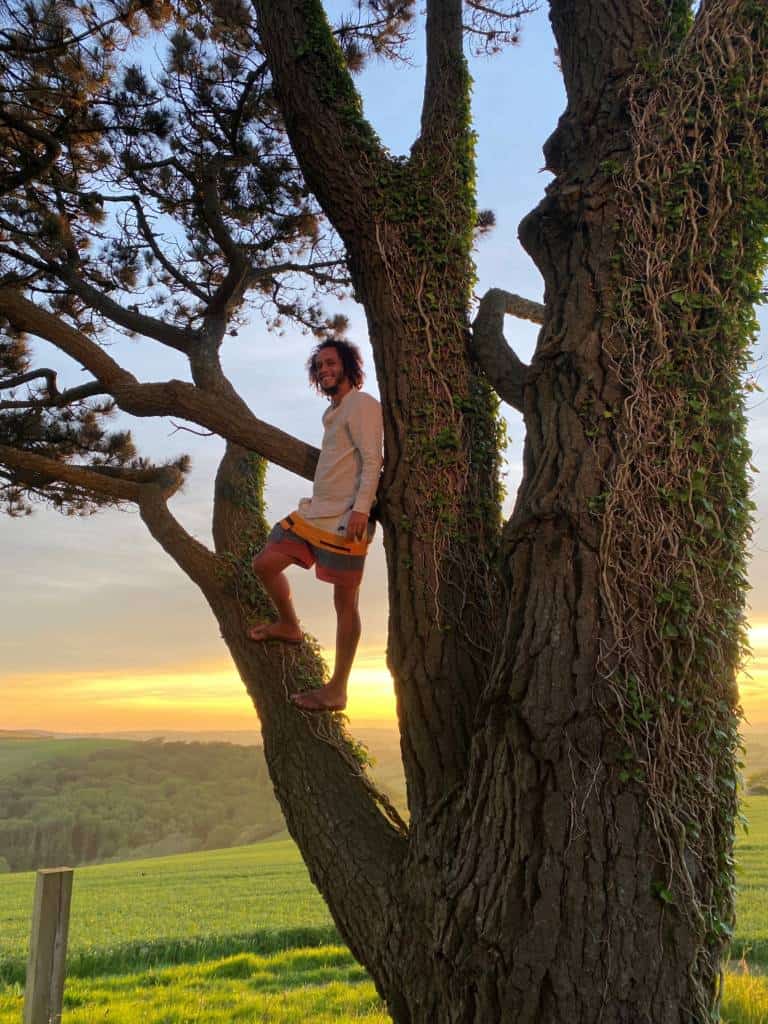A sideways look at economics
Fathom’s management team went away together a couple of weeks ago, to spend a few days in a startlingly beautiful place called The Secular Retreat, near Totnes in Devon. We discussed strategy, drank wine, went for walks — and played games.
The games were the best part.
A game is an activity with an objective, with one or many players, a set of rules and (sometimes) an audience. (On that note, the tentative reintroduction of crowds to summer sports that we are witnessing right now is absolutely glorious. The final of the European Football Championship, whether it involves England or — more likely — not, will see a near-capacity crowd at Wembley and all the rolling, surging emotion that will bring. I can hardly wait.)
Someone has to win and others have to lose. Does it matter that someone wins? Yes. Does it matter who wins? No, not in the least. What is the point of the game? It’s hard to say: what’s the point of anything? The point, if there is one, is the playing of it. To illustrate, I offer three examples from Fathom’s time away.
The first was the kind of game that could barely be described as such, that certainly was not planned but just naturally happened. The retreat stands on a hill and is surrounded by magnificent Scots pine trees, framing the view. We were gathered on a bench outside looking through the negative spaces created by those trees at the view beyond when Laura, one of the team, walked towards one of the trees and made a very half-hearted attempt to climb it. She concluded pretty quickly that it wasn’t going to work, and instead hung around looking picturesque. But Kevin was not so easily put off. He approached the same tree with a determined look. Scots pines, for anyone who is not aware, have deep ridges in the bark that allow, in principle, for good hand holds. But the ridges tend to run vertically. Having spent a couple of nerve-shattering hours watching the film Free Solo, I am aware that vertical holds are vital. In his ascent of El Capitan dramatised in the film, climber Alex Honnold made use of several vertical holds, including one sliver of rock about an inch long and a quarter of an inch wide, protruding from an otherwise sheer cliff face, which provided him with the crucial hold (pinched between thumb and forefinger) in that traverse.
Alex Honnold can do fifty pull-ups (probably more) using only the first two fingers of each hand. Very few people are that strong. Kevin, for all his many talents, is not one of them.
The audience for Kevin’s attempt on the tree was fully engaged, urging him on. And there was a small but real element of danger — a risk of cutting oneself pretty badly if it all went wrong, or even maybe breaking something. He tried, and failed, and tried again, and failed — and eventually made it with a huge heave. Sighs of relief and applause from the crowd. Andrea then went for it: tried, and failed on a couple of occasions, despite vigorous physical support from Laura, and then decided that discretion was the better part of valour and retreated to the bench with the rest of us, who had mostly opted for discretion much earlier on.
Kevin was the winner of that game. It is easy to say the game didn’t matter, but it wouldn’t be true. It did matter. Not just because of what it revealed about Kevin’s character, but because it created a genuinely memorable and, in its way, beautiful moment. Beautiful things or moments don’t have to point to anything else for their meaning. They just are meaningful, on their own account.

Kevin in the tree.
The second game was, again, not conceived as such but became a game as it was played. The team were all present for discussions of strategy, except for one: Brian, who was in Lithuania with his in-laws, his wife and his new child. Brian joined in the discussions remotely. What was the game? It was: participate effectively in the group discussions when you are the only one not physically present. This is a game that we will all be getting used to as COVID restrictions ease — how to run hybrid meetings successfully. In our case, the game was made more difficult because the internet connection was intermittent at best. The team that was physically present was sitting around a table or outside in a circular space, with Brian virtually present on a laptop. Even when the internet was working, the rest of us often would not speak in the direction of the laptop, so it’s probable that Brian did not hear much of what we were saying. And when he tried to speak, very often we would not hear his contribution. A lively argument would be happening, emotions rising, and then you’d hear a crackle of static from the laptop: Brian trying to say something. A conversation like this would ensue:
“What was that, Brian?”
“Oh, I was just trying to say that nmgl pkjl ftmch.”
“What? Oh, he’s frozen. We’ll go back to him in a minute.”
You know. We all know that game, right?
Brian’s challenge was to get heard at all. In which he succeeded. Once he unfroze, he would say things like:
“We should be doing more work on the climate.”
“Climate economics should be one of our main drives now.”
“Other things should be cut so we can spend more time working on climate economics.”
He was heard, and he was right. Brian won that game.
The third game was Racing Demon, a card game in which each player has their own pack of cards, and the objective is to get rid of as many of them as possible into the central pool where everyone’s cards are assembled in ascending order in suits. It is fast and frenetic and best played when slightly tipsy. You need a big, sturdy table, completely empty, around which the players arrange themselves and all start at once. It turns out that one of the key factors to win at Racing Demon is where you are located on the table. There are favourable and unfavourable locations. You don’t want to be at the head of a long table; you want to be in the middle, surrounded by other players. And you want the players near you to be active, loading their cards into the pool to provide you with opportunities; but not too nimble, because when it comes to a straight race with your immediate neighbour to get rid of a particular card that you both hold, you want to win that race as often as possible. To even the odds a little, the winner of the last game has to start the next game from the least favourable position.
However, the rules of the game (as described at our awayday) are silent on the question of whether you are allowed to change places during the game. Jo took that silence as consent and changed places several times while the game was under way. It reminded me of the switch-hitting tactic that cricketer Kevin Pietersen introduced many years ago. KP, a majestic batsman, would take up his stance as a right-hander as the bowler was running in and, in the bowler’s delivery stride, would switch to a left-handed stance (from which he could bat equally well). The bowler might be planning a delivery that would hit the top of off stump for a right-hander — and everything about the run up, the shape of the delivery stride, the way the ball is held in the hand, would be built around that intention. Then KP switches to become a leftie at the last moment, and the ball is way off target, and usually dispatched to the boundary as a result.
The bowler feels aggrieved: that’s not in the rules! Precisely, says KP: the rules are silent on this point. I interpret that silence as consent.
KP won that game — in fact, he changed the game for good. Jo did the same: she changed the game in ways that did not conflict with the rules. The rest of us felt aggrieved. That’s just not how it’s done! No: it’s not how it has been done. But it’s how it will be done in future.
Jo won at that game.
One of the main items on the agenda at our awayday was the formal appointment of three new junior partners into the management team: Kevin, Brian and Jo. This TFiF is Fathom’s way of announcing that step to the world. Congratulations to all three: I think the future of the company is in strong, creative and persistent hands.

The Secular Retreat, near Totnes, Devon

Brian Davidson
Head of Climate Economics

Joanna Davis
Head of China Economics

Kevin Loane
Head of Fathom USA